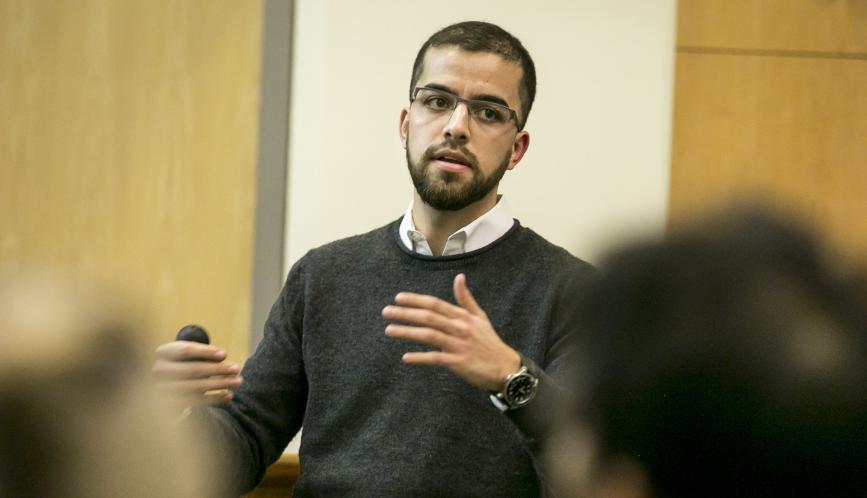ECI network member Jorge Luis García is an Assistant Professor in the John E. Walker Department of Economics at Clemson University. He is also a visiting research fellow at Duke University’s Social Science Research Institute and a Quintiles Fellow at the Schaeffer Center for Health Policy and Economics of the University of Southern California. A labor and applied microeconomist, his research aims to understand the institutions and economic behaviors that contribute to socioeconomic inequality, with one commonality: careful data analysis, whether employing reduced-form or structural methods. García received his Ph.D. in Economics from the University of Chicago.
Describe your area of study and how it relates to current policy discussions surrounding inequality.
I am an applied microeconomist interested in labor and education economics, as well as economic demography.
I have a series of papers devoted to understanding how early childhood education programs benefit society. These papers provide a cohesive message: When targeted to disadvantaged children, high-quality early childhood education programs are cost-effective and tremendously benefit participants and their families in the short- and long-term. First, these programs allow mothers of disadvantaged participants, who are usually single and time- and resource-constrained, to reenter the workforce soon after giving birth. This positively impacts their life-cycle labor income trajectories. Second, programs foster short-term cognitive and socio-emotional skills allowing children to succeed as students, even in high-school and college. Third, building on these skills, participants of these programs earn more labor income across their life cycles, commit fewer crimes, and have better health. Together with a series of a coauthors, I have found that some of these programs are so beneficial that they yield 7 dollars per each dollar of investment that is required to fund them. This is a straightforward policy to remediate social inequality. In another line of research, I provide a new assessment of China’s One-Child Policy. This policy regulated the fertility outcomes of half a billion women between 1979 and 2010, and it is fundamental to our understanding of fertility in the most populous country in the world. I document that in 2000, the total fertility rate and the average daughter-to-son ratio were 1.5 and 0.8. In the absence of the policy, these values would have significantly differed and would have been 2.1 and 0.9. I show that the difference between the actual and counterfactual total fertility rate was a pure sex-ratio distortion. The sex-specific response to the policy highlights the interaction that policies have with the strong preference for male children that characterizes Chinese families, and is urgent for policymakers to consider to tackle gender inequality.
What areas in the study of inequality are most in need of new research?
I do not think that a particular focus should be prioritized. The profession is large enough to have top-quality researchers across several areas. I believe that, generally, economists could do a better job at considering interdisciplinary work and acknowledging the studies and findings from other fields like history and sociology, which we often overlook or dismiss. We often see ourselves at a methodological advantage, which we can leverage as a tool to integrate the knowledge from other sciences. For example, we can better understand contexts and policies shaping inequality by better integrating history into our analysis. Similarly, we can learn from and build on sociologists’ findings to questions often viewed through a broader lens and that sociologists considered before economists.
What advice do you have for other emerging scholars in your field?
I am an emerging scholar myself, so I would not feel comfortable giving advice. What I would like to do instead is to share what inspires me every day. I think of the journey of Olympic athletes and try to mimic it. These athletes engage in an enterprise that takes four years or even multiple Olympic cycles. They compete in the most competitive of environments. Most of them do not get a medal, let alone a gold medal, but they pride themselves in respecting their profession. I aspire for my journey as a researcher to be respectful to economic science. I also want my research to be guided by a genuine interest in relevant social problems and based on economic principles. I admire researchers who have devoted themselves to provide a handful of studies that have endured as academic pieces shaping how we think about societal issues and their potential remedies.



